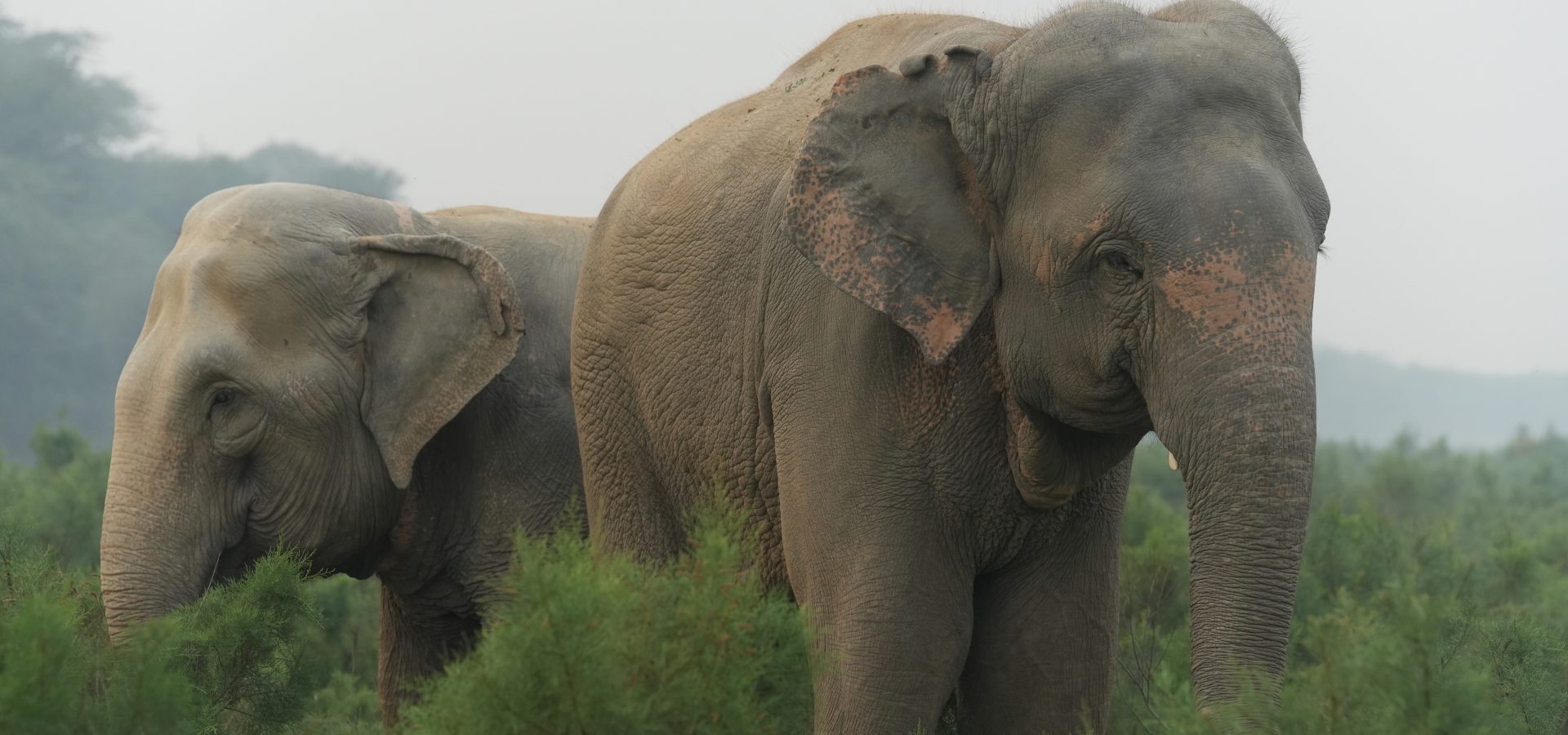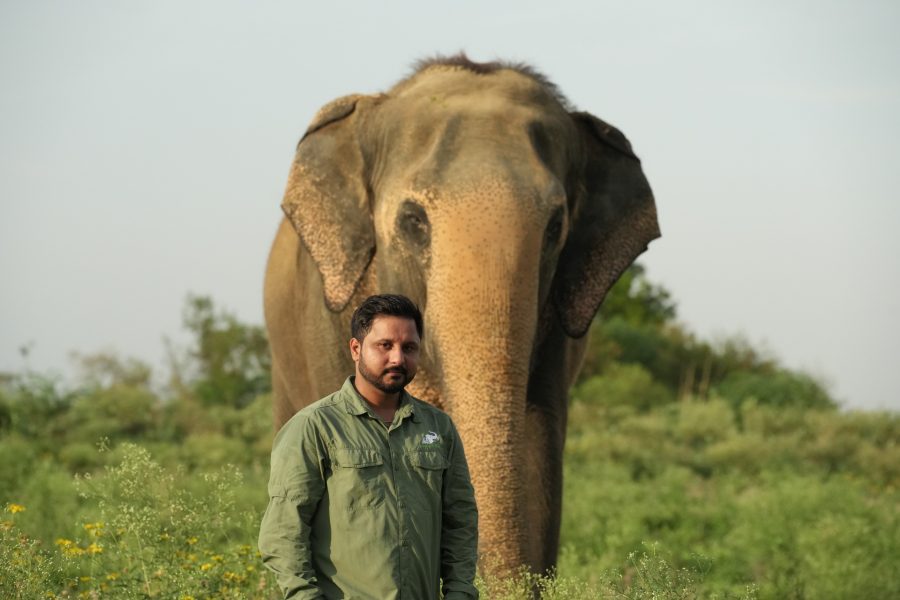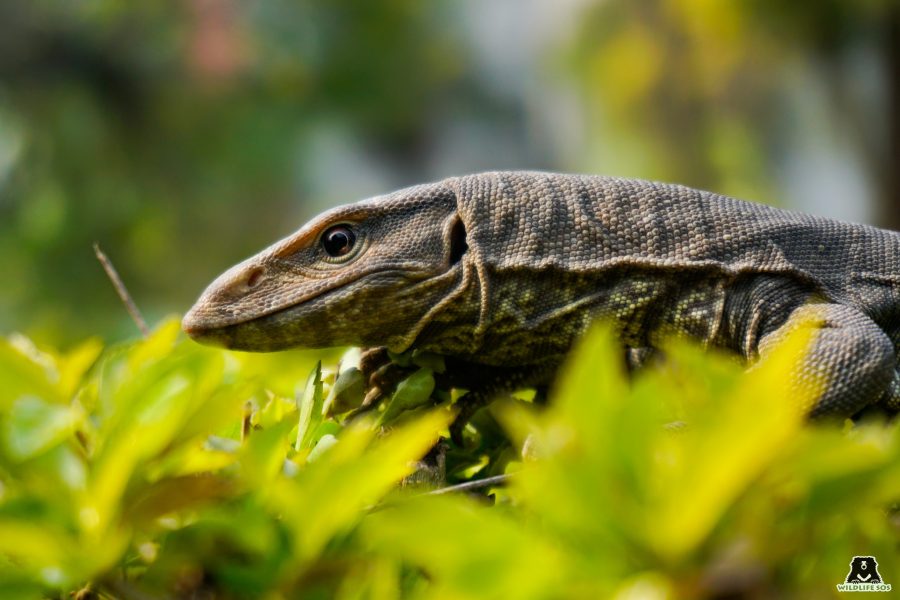In the bustling streets of India, where relentless heat hits the harsh tarmac roads, two elephants, Taj and Tara, were forced to walk for countless hours amidst the constant buzz of human activities. Each step taken by them reinforced their cruel captivity; they served as painful reminders of how distant they now were from their wild kith and kin. Bound to a life of begging in the concrete jungle, the only food offered to these elephants was by the few attentive passersby.
Taj and Tara found fleeting moments of solace whenever their paths crossed while begging in the same vicinity. Through rumbling sounds and by intertwining trunks, they had formed a connection that transcended the hardship surrounding them.
It was in these moments that the weight of this torment momentarily lifted, and was replaced by the warmth of companionship. They say that an elephant never forgets. In their short encounters, Tara and Taj held on to the brief respite of familiarity — finding a comforting sanctuary in each other.
A Long, Winding Road to Freedom
Taj and Tara’s improved health outlook was more than 9 months in the making, but they’ve still got a long way to go. Our new medical outreach programs mean we offer to help elephants in distress, no questions asked. The aim is to treat elephants early, before they become critical. We made this promise to Moti, the elephant who died despite valiant efforts to save him. He fought hard to live, and we didn’t give up on him. This same determination to save the lives of elephants brought us Taj and Tara.
We made an uneasy agreement with their owners, and the close-knit pair of pachyderms was brought to the Elephant Hospital Campus (EHC) for treatment. Through the Indian legal system and unwavering dedication of our staff, Taj, the 18-year-old bull, and Tara, a 25-year-old female, were recently awarded to our care permanently.
Taj and Tara At The Elephant Hospital Campus
Taj arrived at the EHC with a series of ailments—a limp in his front left limb, a low appetite, sceptic toe abscesses, a thin footpad, and a degenerative joint. Addressing these challenges required a comprehensive, long-term plan. The veterinarians at the hospital started his treatment by increasing Taj’s food intake, and administered probiotics to improve his gut health. As Taj’s appetite increased, fresh fruits like watermelons, bananas, and sugarcane became staple in his everyday diet. His progress was closely monitored by a vigilant caregiver, who would convey his observations to the medical team.
Treatment for Taj’s sceptic toenail included a concoction of water, Epsom salt, and turmeric, while antimicrobial vinegar and Listerine spray were regularly applied to cure the elephant’s injuries. As part of a comprehensive foot care regimen for Taj, topical application of keratin aided foot pad regeneration by increasing protein creation in his thin footpads. Due to the severity of the elephant’s limp and abscesses, laser therapy became a daily ritual for the pachyderm to alleviate joint pain. Along with this, collagen enzymes were applied to Taj’s limbs to help with his limp. He was also provided intravenous antibiotics which ensured swift healing for the pachyderm.
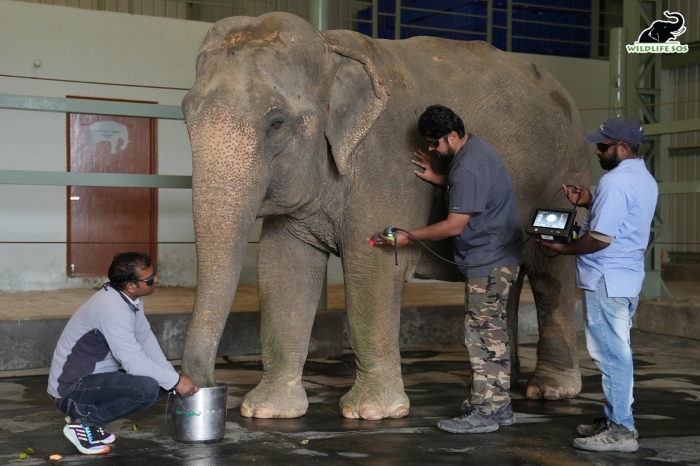
Just when Taj began his journey towards healing, Tara was found having colic issues. This led to immense pain for the pachyderm, and a significant loss of her appetite which was a major cause of concern for the pachyderm’s wellbeing. Wildlife SOS’ veterinary team devised a multifaceted action plan for Tara who was severely malnourished when she came under the care of the NGO. Under this plan, Tara was provided with intravenous and intramuscular medicines, antibiotics, and anti-inflammatory treatments to reduce the pain emanating from her stomach providing relief to her colic disease. Herbal medicines and a comprehensive diet worked synergistically to revive her willingness to eat. Tara also grapples with dermatitis, which is being diligently managed with a saline water solution provided by her caregivers.
Current Health Condition
Since Tara’s arrival at Wildlife SOS, her progress has been commendable. Her appetite is gradually increasing with the regular supply of fresh and juicy fruits. On the other hand, Taj is slowly growing familiar with his new environment. Once limping, he now stands with much more stability on the soft mud of his field owing to the significant healing of his foot pad and his toenail abscesses.
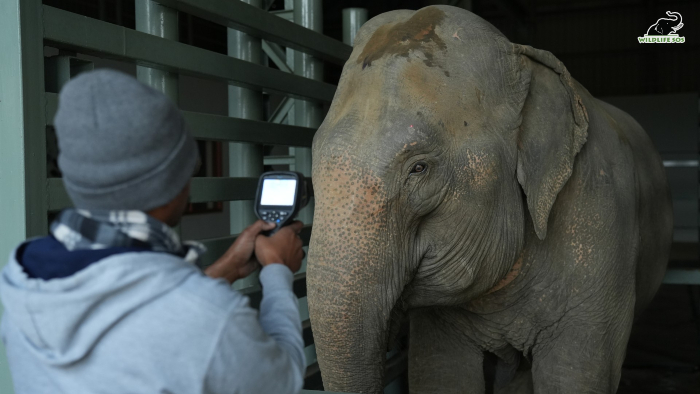
An enduring bond between a young adult male and a mature female isn’t common to elephants in the wild. Taj is highly receptive to Tara’s behaviour, and treats her like a long lost friend while showcasing his protective instincts. Whenever Tara goes for her medical treatments in the Elephant Hospital, Taj displays signs of what can be best described as immense concern. To allay his anxiety, Taj prefers to join Tara for each of her treatment sessions, and during this time, closely watches her. For the staff and medical team, the emotional and caring relationship of Taj and Tara has been overwhelming to witness.
Wildlife SOS has been actively working towards the betterment of elephants in India, and has launched a petition advocating for bi-annual physical verifications of privately owned elephants. In order to ensure that elephants remain safe and are in good physical condition, the petition pushes for veterinary certificates of health to be issued only after due examination by veterinarians authorised by the Chief Wildlife Warden. As Taj and Tara embrace a life unburdened by suffering, their story beckons us to stand as strong supporters for the welfare of elephants.
To ensure captive elephants receive necessary medical treatments and sensitive care, sign and share the petition.

